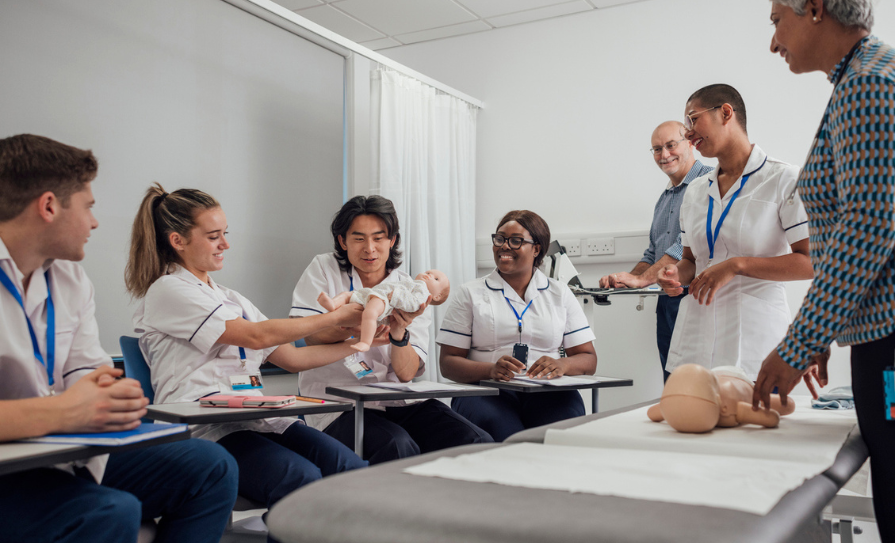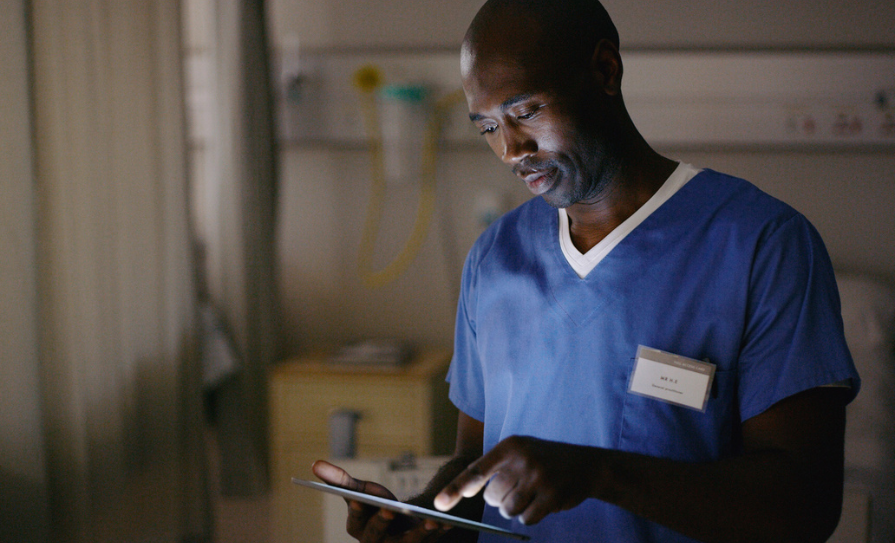Greetings colleagues. For those of you who are unfamiliar with our role, Professional Development Coordinators (PDCs) for general practice nursing are employed by the HSE and based within the HSE administrative areas. We have responsibility for the representation of the discipline at all levels, the strategic development of nursing within general practice, as well as supporting general practice nurses (GPNs) in practice development, from induction to advanced practice.
Our role includes collaboration with all key stakeholders to further a quality-driven nursing service across primary care in line with national health strategy, including:
- The promotion of a culture of enquiry among GPNs.
- Facilitation of the adoption of evidence-based practice and service delivery within primary care, achieved through commissioning, coordinating, developing, and delivering training and development initiatives that strengthen the professional expertise of GPNs.
- Facilitating new specialist (Clinical Nurse Specialists in General Practice) and advanced nursing posts (Advanced Nurse Practitioner (ANP) in Primary Care) within this sector, which will assist in improving service capacity and aid individual general practices and primary care teams to achieve their objectives.
- Offering advice and expertise in the GPN role as part of the wider communitynursing and primary care team and promoting the contribution of GPNs within primary care.
The role of the PDC for GPNs is therefore a facilitative and collaborative one, having regard for the independent contractor status of general practitioners and the GP’s position as the employer of the nurse. We continue to work with the Chief Nurse’s Office at the Department of Health to inform the implementation of the recommendations of the Expert Review Body report in respect of those that relate to or have an impact on general practice nursing. We continue to represent the discipline at national level on committees, steering groups, and anywhere the voice of the GPN is appropriate.
We are working hard to increase the number of PDCs in Ireland and to expand our resources to further support your practice development as well as the discipline as a whole. We are currently engaged in several active projects, including planning immunisation study days across the country and developing a suite of medicine protocols for immunisations in general practice.
As we go from a busy time to an even busier one, we hope you are all managing your time and taking care of yourselves in the challenging environment that is general practice at the moment. Each of us has noted a huge increase in new nurses coming in to general practice, and are contacted frequently by GPs looking to source nursing staff. We are very aware of your workload and ongoing pressures on the service, and will do anything wecan to support you in your practice and professional development.
Please do get in touch with your nearest PDC if we can be of any assistance or offer advice in any area.
Continuing education in general practice
We welcome the new Post Graduate Diploma in Primary Care Nursing, which has just commenced in UCD. We would like to link in with all of you that enrolled on this programme for the purpose of networking and support throughout the year ahead.
Similarly, if you are enrolled on the prescribing programme or ANP candidacy, we would also like to keep in touch. Our ANP group are meeting for the third time in October, and this group will be working together to develop and manage the role of the ANP in general practice, with us supporting the national alliance by facilitating meetings and supporting education, networking, and project work going forward. We would hope to set up a similar network for prescribers in general practice in 2024.
Please email your nearest PDC to ensure you are added to the mailing list for any of these groups and we will link you in with your peers.
Flu and Covid-19 vaccinations in general practice
As the winter vaccination season approaches, you will have received communications from the HSEregarding the schedule for this year, and from 18 September will begin to receive deliveries with a view to the programme beginning in earnest at the beginning of October. It is aimed, where possible, to provide for coadministration of both vaccines at the same time for eligible individuals.
The following cohorts are eligible for the free flu vaccine: All children aged two-to-12 years at the time of vaccination; Persons aged 65 and older; Pregnant women (at any stage of pregnancy); Healthcare workers including all general practice and pharmacy staff; Residents of nursing homes and other long-stay institutions; Carers and household contacts of people with increased medical risk; People with regular contact with pigs, poultry or water fowl; Those aged six-to-23 months and aged 13-to-64 years with:
- Chronic heart disease including acute coronary syndrome;
- Chronic liver disease;
- Chronic neurological disease including multiple sclerosis, hereditary and degenerative disorders of the central nervous system;
- Chronic renal failure;
- Cancer patients;
- Chronic respiratory disease, including chronic obstructive pulmonary disease, cystic fibrosis, moderate or severe asthma or bronchopulmonary dysplasia;
- Diabetes mellitus;
- Down syndrome;
- Haemoglobinopathies;
- Immunosuppression due to disease or treatment, including asplenia or splenic dysfunction and cancer patients;
- Morbid obesity, ie, body mass index of 40 or over;
- On long-term aspirin therapy (because of the risk of Reyes syndrome);
- With any condition (eg, cognitive dysfunction, spinal cord injury, seizure disorder, or other neuromuscular disorder) that can compromise respiratory function especially those attending special schools/day centres;
- With moderate-to-severe neurodevelopmental disorders such as cerebral palsy and intellectual disability.
The two flu vaccines this year are the Influvac Tetra (QIV) and Fluenz Tetra (LAIV). Some LAIV will be delivered to children in schools by the HSE vaccination teams. This will be for senior infants in primary schools and eligible children in special schools at primary level. This year, for children aged 13-to-17 years, only those who are in an at-risk group are eligible in the 2023/24 season cohort.
You are required to update your training and education via the online HSELanD programmes (www.hseland. ie -> Course Catalogue -> Clinical Skills -> National immunisation Office -> Influenza (flu) vaccination); to use the National Immunisation Advisory Committee (NIAC) guidelines to guide your practice (available on www. immunisation.ie); and to ensure that you keep up-to-date with the latest clinical updates on the National Immunisation Office website (www.hse.ie/eng/health/ immunisation/hcpinfo/fluinfo/).
The following groups are recommended by NIAC for an autumn Covid-19 booster:
- Those aged 50 years and older;
- Those aged five-to-49 that are immunocompromised and associated with a suboptimal response to vaccination;
- Those aged five-to-49 with medical conditions associated with a higher risk of Covid-19 hospitalisation, severe disease, or death;
- Those aged 18-to-49 who, following discussion of their reasons with a health care provider (eg, GP, pharmacist or vaccination centre), request vaccination;
- Health and care workers. In addition, the following groups remain eligible for Covid-19 vaccination throughout the year:
- Primary courses for those aged six months and older;
- First booster dose for people aged 18 years and over, or 12 years and over if immunocompromised;
- Pregnant women in the appropriate stage of pregnancy and where the appropriate time since last dose of vaccine has elapsed.
Medicine protocols
The medicine protocols for the two flu vaccines and the Covid-19 vaccine in use for the coming season will be available from your PDC by the end of September. Remember all vaccines are prescription-only medicine and you must have either an individual prescription or medicine protocols for all vaccines being administered. If you require any advice or assistance in implementing protocols in this or any area, please do get in touch with your nearest PDC.













Leave a Reply
You must be logged in to post a comment.